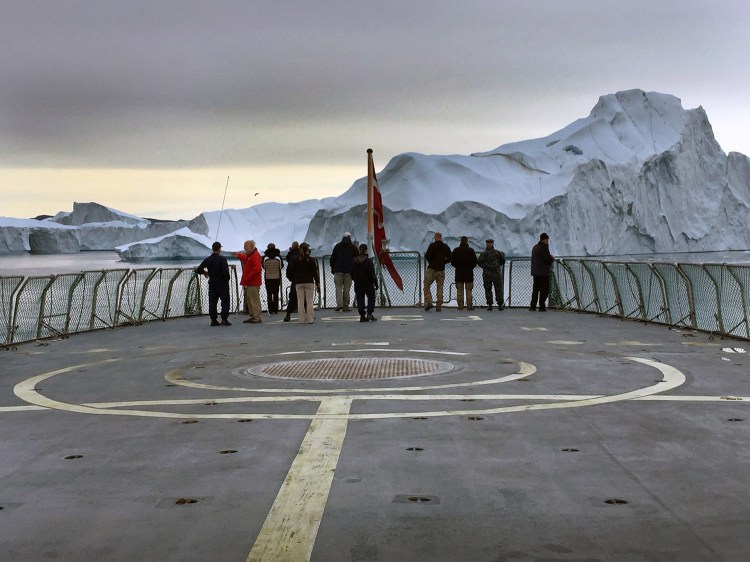Members of a climate change panel told an audience of about 500 Thursday night that U.S. military bases are vulnerable climate change, posing a threat to national security.
Independent Maine Sen. Angus King, who moderated the discussion and was joined by a retired Marine lieutenant general and a film producer who documented the vulnerability of military bases in Virginia to rising sea levels, said the Pentagon has been asked by Congress to report on the long-term cost of relocating or fortifying coastal military bases in the United States and around the world.
“Climate change is an issue that should concern everyone,” King said at the event on the University of Southern Maine’s Portland campus. “We have to do something about it, and we have to do it now.”
Scientists overwhelmingly believe that the Earth’s changing climate is contributing to droughts, floods, sea level rise and more extreme weather.
King, a member of the Senate Armed Services and Intelligence committees, was joined by Lt. General John Castellaw, who served in the Marine Corps for 36 years.
Castellaw is a member of the Center for Climate and Security’s Advisory Board and president of the Crockett Policy Institute, a nonprofit, non-partisan policy and research organization based in Tennessee. He is also a recognized national security expert who served with the United Nations during siege of Sarajevo and was chief of staff for the U.S. Central Command at the height of wars in Iraq and Afghanistan.
Roger Sorkin, executive Director of the American Resilience Project, was the other panelist. Sorkin is an award winning producer, writer and director whose film “Tidewater” documented the vulnerability of military bases in Hampton Roads, Virginia, to sea level rise – a threat he believes could affect military readiness and national security.
Hampton Roads is one of the world’s largest natural harbors and is home to 14 military installations, one of the largest concentrations in the U.S.
Castellaw said the Portsmouth Naval Shipyard in Kittery could be negatively impacted by rising sea levels before the end of the century. He said rising tides could bisect the shipyard, which overhauls, repairs, and modernizes Los Angeles class submarines, and cut off access to the mainland.
“This is something you Mainers can and will see,” Castellaw predicted.
King said he toured Greenland about 18 months ago with the U.S. Coast Guard. He was shown giant holes in the ice pack created by global warming. King said if glaciers continue to melt, sea levels could rise by 6 to 8 feet in the next century.
“It’s happening faster than people thought,” King said. “It would be a disaster of major proportions. It would make any major city on the East Coast uninhabitable.”
Thursday evening’s panel discussion on the “National Security Impacts of Climate Change” was co-sponsored by the World Affairs Council of Maine, the Natural Resources Council of Maine and the American Security Project, a nonprofit, non-partisan public policy and research organization based in Washington, D.C. It was held at USM’s Hannaford Hall.
Dennis Hoey can be contacted at 791-6365 or at:
dhoey@pressherald.com
Send questions/comments to the editors.



